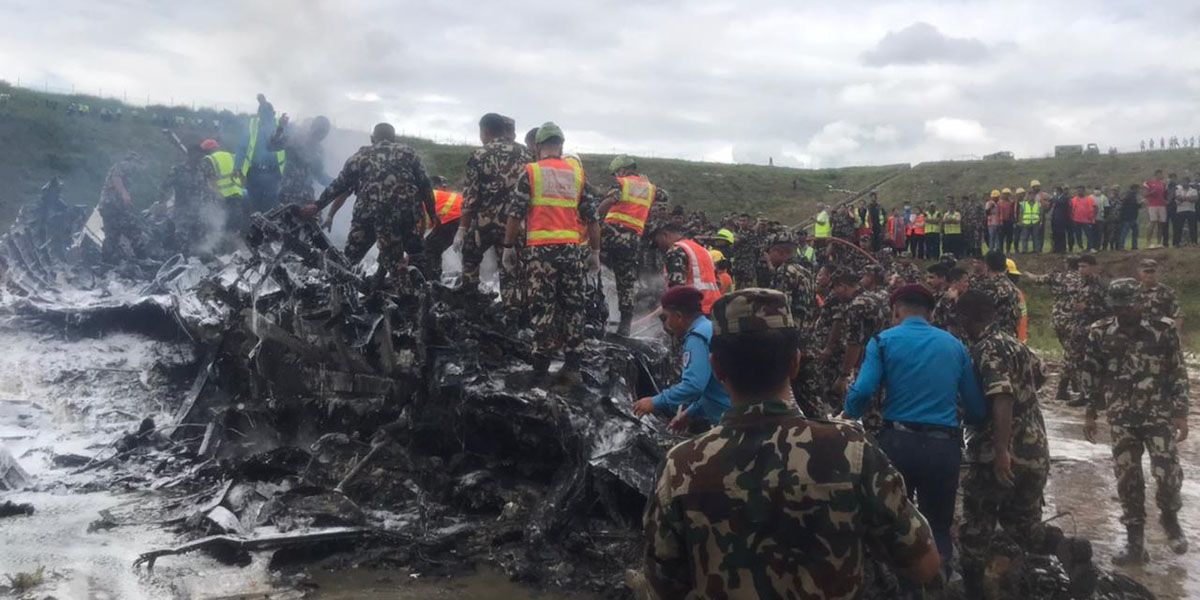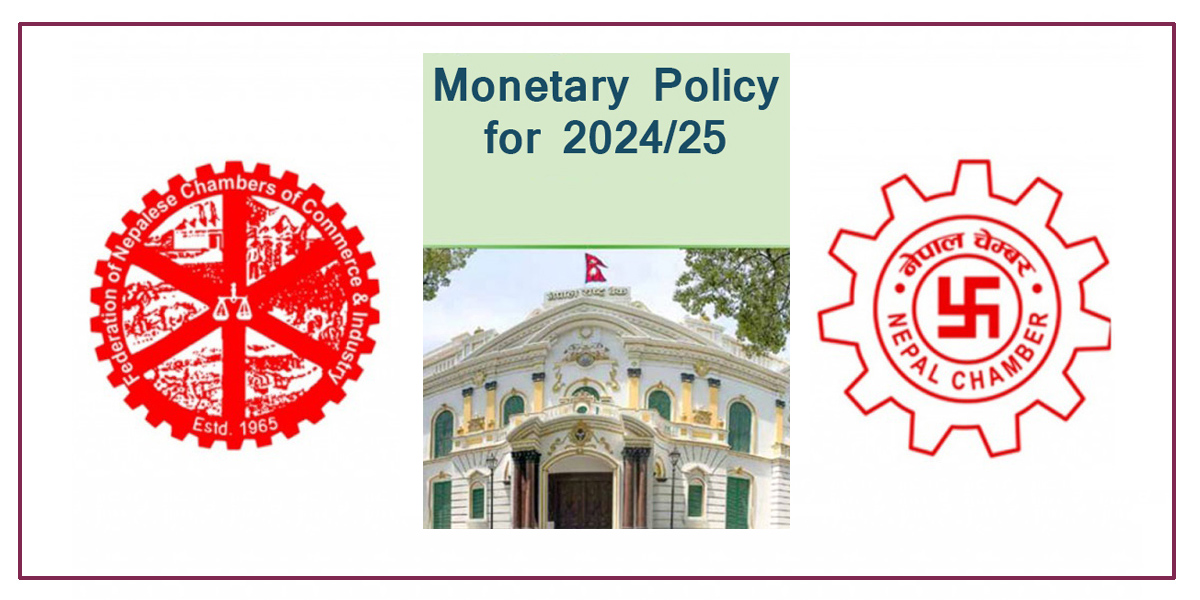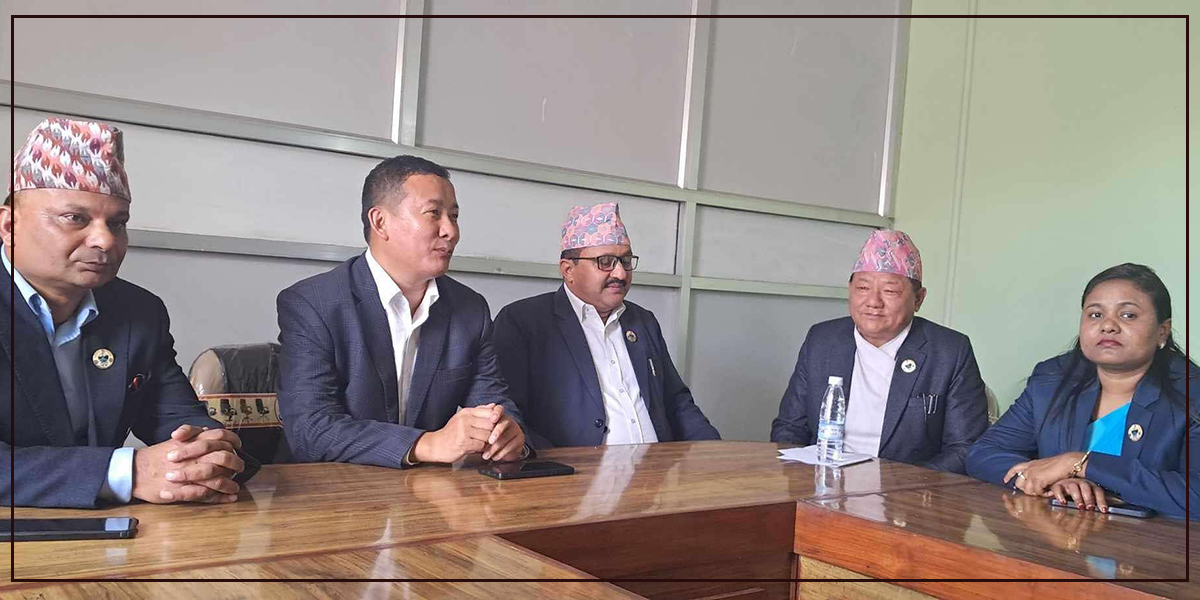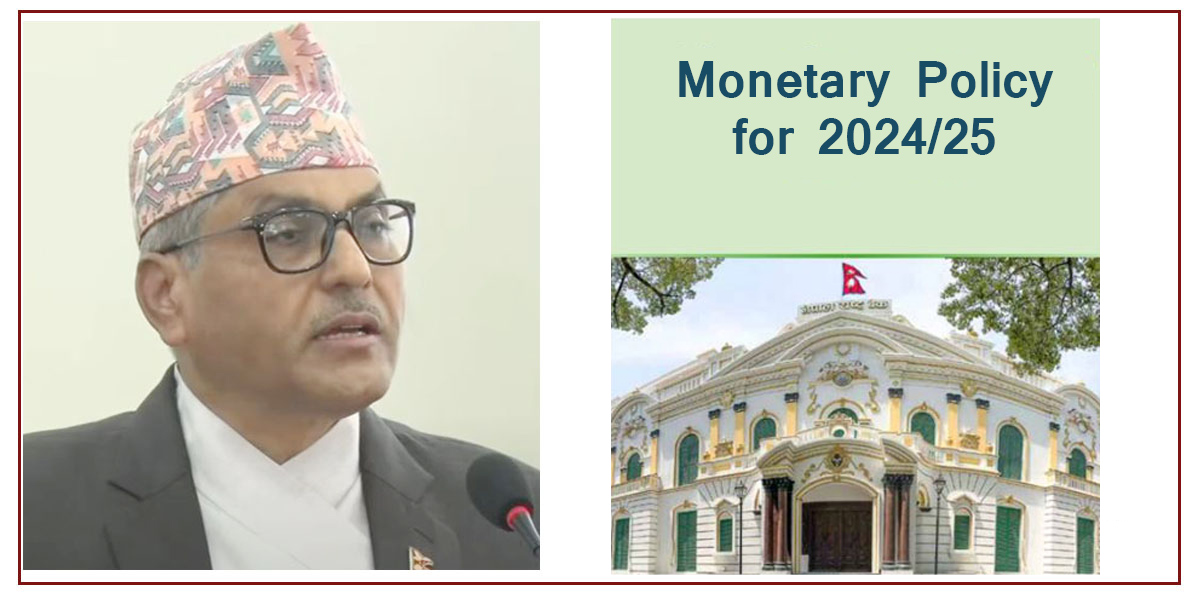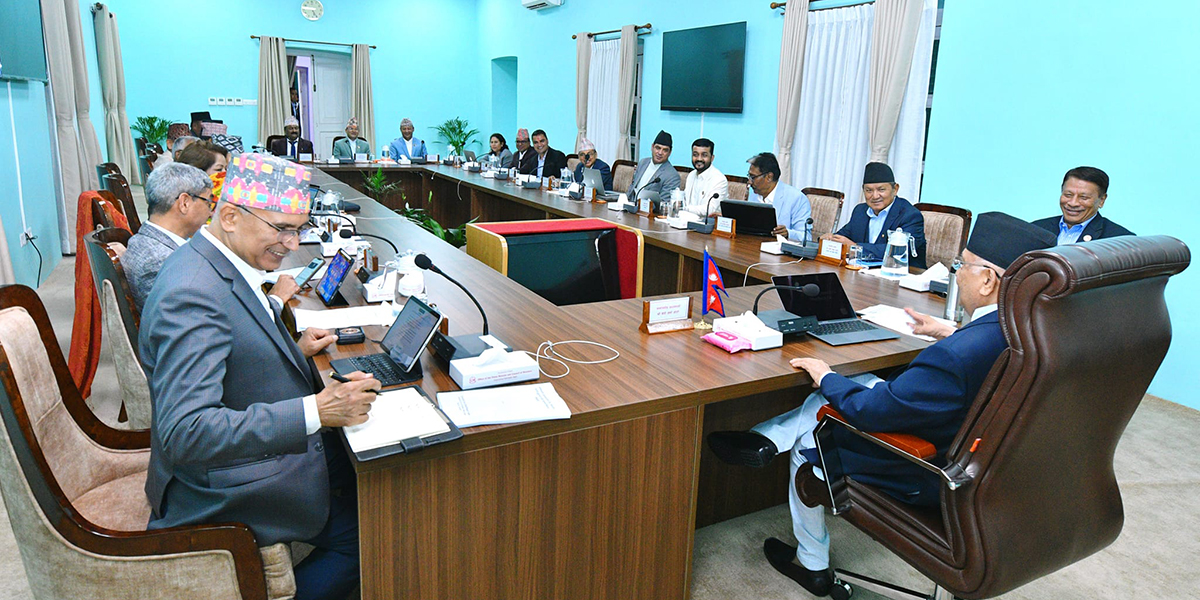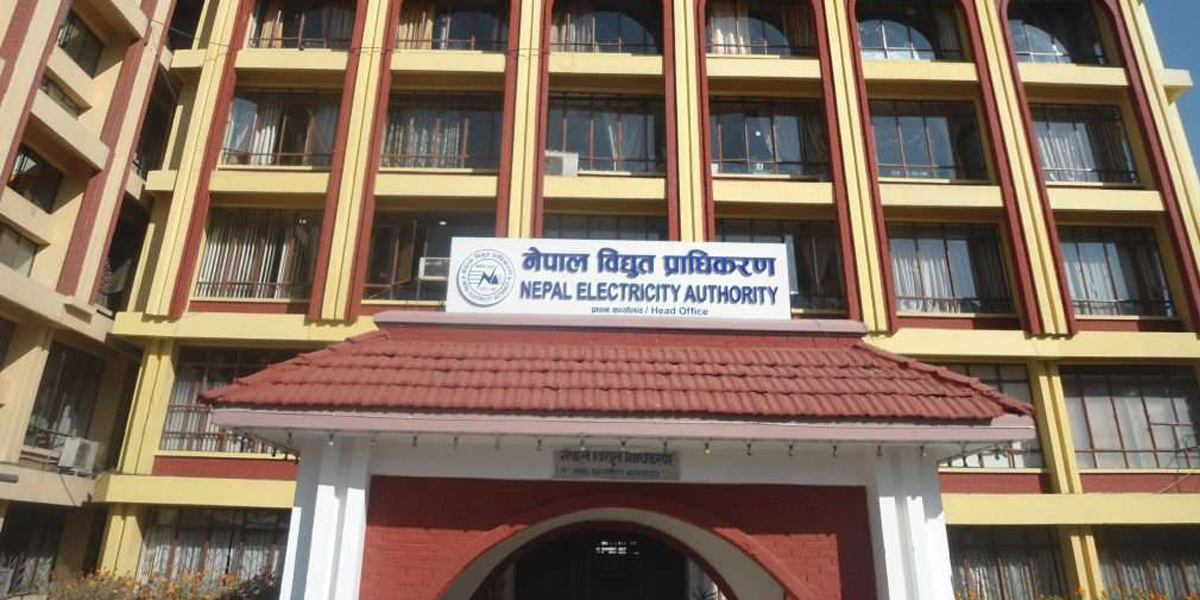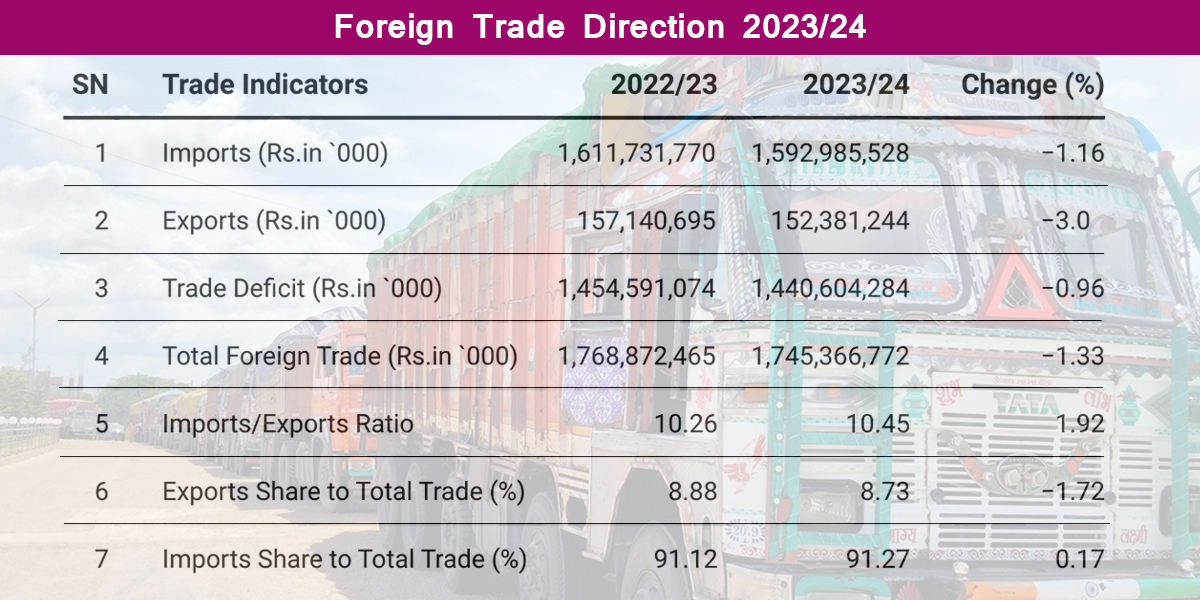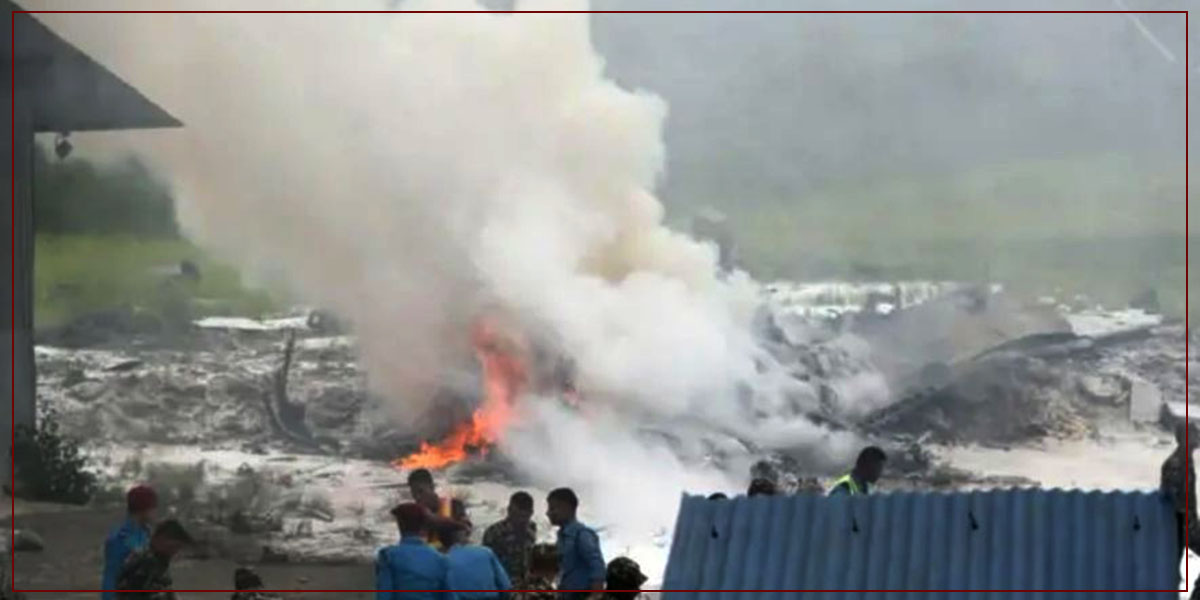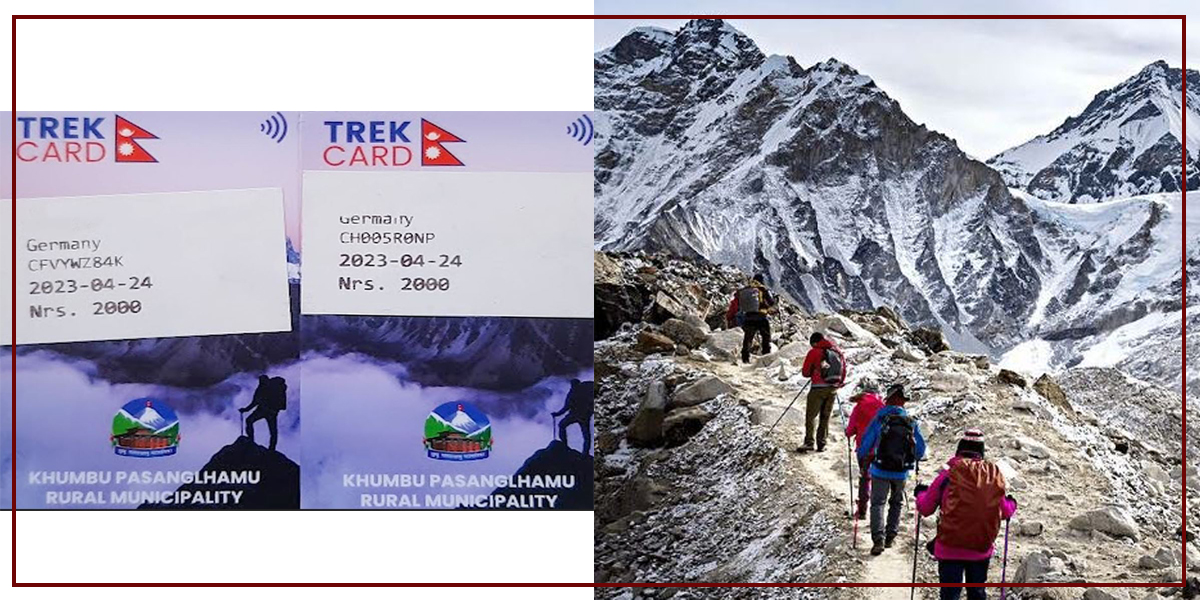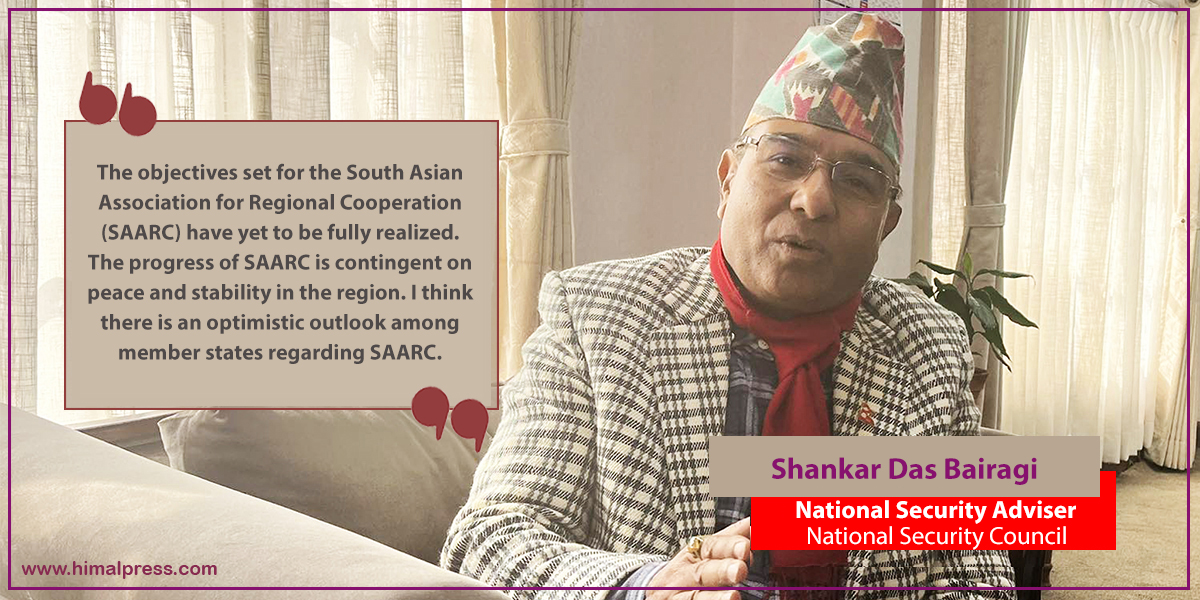
Shankardas Bairagi currently serves as the National Security Adviser to the National Security Council. With an illustrious career spanning 34 years in the foreign service, Bairagi ascended to the highest echelons of civil service, transitioning from the role of foreign secretary to the chief secretary. Bairagi participates in the National Security Council meetings, especially during discussions on security matters. In an interview with Chandra Shekhar Adhikari of Himal Press, Bairagi shared insights on a wide array of issues, with a particular focus on his new responsibilities. Excerpts:
How has your experience as a foreign service cadre shaped your perspective on geopolitics?
I started my career in civil service through foreign service, underwent rigorous competition for various positions, and eventually attained the role of Secretary. I provided administrative leadership to the foreign ministry for nearly seven years. Significant diplomatic events unfolded during my tenure as the foreign secretary, such as the SAARC Summit and the BIMSTEC conference. Likewise, I took charge of coordinating with the diplomatic community for the post-2015 earthquake reconstruction efforts and also briefed them on the content of the new constitution after its promulgation. Working alongside various ministers, we established bilateral consultation mechanisms with countries such as the US, Australia, Britain, France, Japan, and Germany.
Multiple high-profile visits, including those by the President of India and China, and Indian Prime Minister Narendra Modi, occurred during my term. I also participated in foreign visits of our President and Prime Minister. I had the opportunity to work with three prime ministers and one chairman of the Council of Ministers.
Presently, I have been entrusted with the significant responsibility of serving as the National Security Adviser. In this capacity, I am addressing various security issues. Beyond conventional security considerations, I recognize the importance of examining security from broader perspectives. My primary responsibility is to provide recommendations to the Security Council and the Government of Nepal, addressing diverse security challenges at the national level emanating from the increasingly intricate global geopolitical landscape.
In the evolving global landscape, security encompasses various dimensions. Which specific areas are you currently prioritizing?
The focus extends beyond traditional notions in the contemporary security paradigm. There is a need to take a person-centered, multidimensional, and holistic approach. This necessitates addressing a spectrum of intricate issues, including food security, social security, cyber security, challenges stemming from the impacts of climate change, energy security, and economic security. While international migration is inevitable, there is a need to manage the pace at which our workforce is migrating, considering its implications for national security.
We are delving into diverse security concerns such as environmental challenges, human rights, cyber security, and other issues in the current scenario.
What plans are being formulated to provide opportunities for the youth in the country?
A considerable number of 18-19-year-olds are pursuing higher education abroad. We should focus on how we can enhance the quality of education domestically and create conducive employment opportunities comparable to those available abroad. To channel youthful energy positively, we need to promote youth-centric entrepreneurship. Youth employment, fostering entrepreneurship, and encouraging participation in the production sector are the burning issues now. The objective is to empower the energetic youth, recognizing their pivotal role in shaping the future of the country.
What measures can be taken to retain young talent in the country, and has there been any research on this issue?
In this era of digital transformation, time zones have become more important than geographical borders. Young professionals can contribute globally, particularly in the IT sector, while working from any location in Nepal. It is important to establish the perception that labor is valued to retain talent. The private sector must implement tangible initiatives to foster entrepreneurship. If we become successful in creating an environment that offers both job opportunities and equitable wages, Nepali youth currently abroad will return.
It is necessary to maintain a collaborative relationship between universities and the private sector. We can ensure the production of skilled professionals by aligning educational institutions with market and industry needs. This will help our workforce to find jobs easily. Everyone needs to play their part in nation-building.
Although preventing outmigration completely may not be feasible, we can reduce the rate of exodus of our youths by providing them with opportunities at home. Despite the perceived safety and dignity associated with civil service, many offspring of employees and politicians are seeking education and opportunities abroad. To check this trend, our universities must enhance their standing and avoid becoming arenas for political activities. It is necessary to prepare a workforce that is capable of competing in the job market. Furthermore, incorporating technology into bureaucracy can enhance service delivery. We need to adopt the ‘smart office, smart person’ philosophy. We are lagging because of the quality of education. Things will improve gradually.
It is often said that Nepal has three neighbors – India, China, and the United States. Recently, diplomats have shown a preference for strengthening cooperation with these three nations over other friendly countries. Can you provide further insights into this?
Nepal has pursued a pragmatic approach in its diplomatic endeavors. India and China are our immediate neighbors, and the United States is a longstanding friend and an important development partner. We have been proactive in expanding and fortifying relations with our neighbors and other countries putting national interests first. We must maintain good relations with all neighboring nations and seek their support in our development endeavors.
It is crucial to remember our historical context while navigating the current technological era. The dynamics of bilateral relationships evolve based on distinct foundations and dimensions. Nepal remains a friend to all, we have enmity with none. Nepal needs to adopt a clear and independent perspective that its territory will not be used for activities against the interests of any country, including its neighbors. Upholding trust among nations is vital, and Nepal should be steadfast in adhering to its non-aligned foreign policy. While others are trying to build a new narrative citing changed context, we are clear about the policy of non-alignment.
Do you think having large and powerful neighbors has hindered Nepal’s ability to compete in the production and export of its products?
Nepal can make significant strides in economic development if goods produced in the country get easy access to markets in India and China. We need to make more efforts for this. Collaborative efforts between the government and the private sector are essential to enhance production capacity and competitiveness. The current focus should be on substantially increasing our production capabilities.
How do you assess the current situation of SAARC? Is there consensus among member states that SAARC is no longer relevant?
The objectives set for the South Asian Association for Regional Cooperation (SAARC) have yet to be fully realized. The progress of SAARC is contingent on peace and stability in the region. I think there is an optimistic outlook among member states regarding SAARC. Although the SAARC Summit is not convening, other meetings are getting continuity. No member state has expressed the view that SAARC is not necessary. Strengthening the Secretariat and fostering an environment acceptable to all can revive regular activities within SAARC. If SAARC gets momentum, it can contribute to the collective development of the region through institutional strengthening. The success of SAARC can be in the interest of all member states.

 Himal Press
Himal Press 